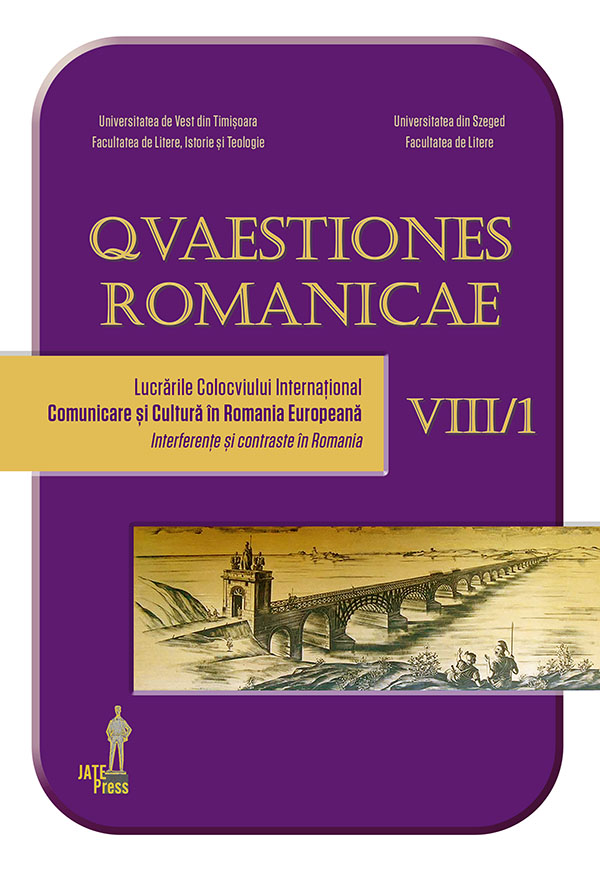„Nu-i condei să poată scrie”: egestas linguae – concept și mărturisire în poezia lui Traian Dorz
Abstract: („Nu-i condei să poată scrie”: egestas linguae – Concept and Confession in the Poetry of Traian Dorz) The aim of our paper is to analyse the concept of egestas linguae, as it is reflected in some of the lyrical confessive creations of Traian Dorz – a Romanian contemporary author whose work represents the fruit of some spiritual experiences that decisively sealed his existence. Nonetheless, the soul’s relationship with God (in the frame of Earth, but also in the perspective of eternity) remains a constant topic of this work dedicated to His uniqueness, to the amazing feeling of divine love, within which everything is, not once, wordless. As a result, we will have in view the fact that such unmediated confessions, about the weakness of language in the act of artistic creation, materialize to an expressive extent, in several ways, especially through the means of sentences (main or subordinate clauses) with verbs in the negative form (like to be or can), underlining the limits of the usual discourse in the act of trying to portray the exceptional characteristics of Divinity, impossible to convey through trivial words; nevertheless – easier to depict through that emblematic absence of a written or said word, equivalent to the uplifting quietness while praying, following the mystics of forever.
Keywords: egestas linguae, mystical-religious poetry, Traian Dorz, grammar, stilistics.
Rezumat: Lucrarea noastră își propune să ia în discuție conceptul de egestas linguae, așa cum apareel reflectat în câteva dintre creațiile lirice cu caracter confesiv ale lui Traian Dorz – un autor român contemporan a cărui operă reprezintă, indubitabil, rodul unor experiențe spirituale ce i-au marcat în mod decisiv traseul existențial. De altfel, relația sufletului cu Dumnezeu (în dimensiunea teluricului, dar și în perspectiva eternității) rămâne o temă constantă a acestei opere consacrate unicității Sale, sentimentului uluitor al inconfundabilei iubiri divine, în legătură cu care totul se situează, nu o dată, pe coordonatele indicibilului. În consecință, vom avea în vedere faptul că atari mărturisiri explicite despre „neajungerea limbii” în actul creației artistice se concretizează expresiv în diverse maniere, mai ales prin intermediul propozițiilor (principale ori subordonate) cu verbe-predicate la forma negativă (de tipul a fi sau a putea), subliniind limitele „zicerii” obișnuite în încercarea de a puncta atributele excepționale ale Divinității, imposibil de transpus în cuvinte banale, însă mult mai uşor de conturat prin acea absență emblematică a cuvântului rostit sau scris, echivalentă cu tăcerea înălțătoare din starea de rugăciune, după modelul misticilor de totdeauna.
Cuvinte-cheie: egestas linguae, poezie mistico-religioasă, Traian Dorz, gramatică, stilistică.
